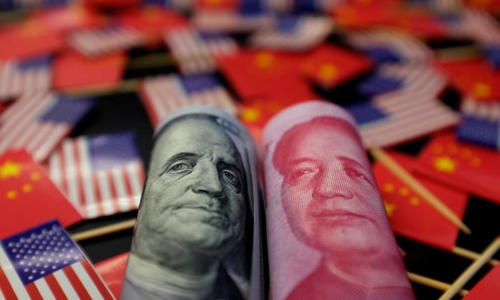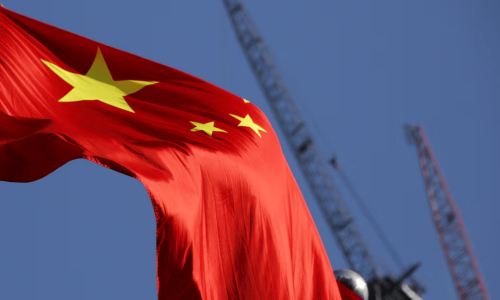A long time ago, Deng Xiaoping termed the reform he helped initiate as China’s second revolution.
“The reform we are now carrying out is very daring. But if we do not carry it out, it will be hard for us to make progress. Reform is China’s second revolution,” he is quoted to have said during his talk with Mr Susumu Nikaido, Vice-President of the Liberal Democratic Party of Japan, in 1985.
“It is something very important that we have to undertake even though it involves risks. Our principle is to be bold, take a confident step and then look around carefully before taking another.
“Our policy is firm, and we are not going to change it. What is important is that we should review our experience at regular intervals, because reform involves the vital interests of the people, and every step we take will affect hundreds of millions of them.”
Since the founding of the People’s Republic of China, the country has evolved from a backward and poor nation into the world’s second-largest economy, achieving numerous milestones along the way. By embarking on a high-quality development path driven by innovation, environmental sustainability and reform, China continues to offer the world new growth momentum and opportunities.
China’s policy relying on national resources and comparative advantage for inclusive growth is instructive for Pakistan
In the last four decades, China’s rapid economic progress has been nothing short of a miracle. Its total economic output last year increased 223 times compared to 1952, with an average annual growth rate of 7.9 per cent. Likewise, the total economic output of the country accounted for about 17pc of the global total.
From 2013 to 2023, China’s average contribution to global economic growth exceeded 30pc, making it the largest driving force behind world economic growth. At present, China is the world’s largest trader of goods, the second-largest country in services trade, the second-largest consumer of commodities, and the largest holder of foreign exchange reserves.
The actual utilisation of foreign direct investment has crossed $163bn, an increase of 176 times compared to 1983, maintaining a world-leading scale for several consecutive years.
At the third plenary session of the 20th Chinese Communist Party Central Committee in July this year, China rolled out a slew of specific reform measures, presenting a clear blueprint for promoting high-quality development for modernisation.
At the back of its amazing economic progress, argues Ali Farid Khawaja, chairman of KTrade, is the unique model this economic giant has adopted. “The Chinese model is important for all of us to understand for Pakistan’s economic policymaking and progress and its impact on the financial market, because it’s different from the traditional economic models in many ways,” he says.
But, what makes the Chinese economic model unique? First of all, unlike other economies that go through business cycles composed of concerted cyclical upswings and downswings in the broad measures of economic activity — output, employment, income, inflation and so on — every few years, China has consistently expanded at 8-10pc for over three decades.
Even as its economy slows down, it is still growing at 5pc, contributing in a major way to global economic output, Mr Khawaja said while speaking at a recent webinar to launch a report ‘China’s 75-year journey: Breaking myths & inspiring hope’.
The second feature that distinguishes China from others is the fact that it has grown without any wars or conquests through which they controlled or accessed the natural resources of others. It grows through the combination of its own labour, investment and technology.
That’s why China is not only one of the leading countries in the world in telecommunications, green energy, semiconductors, artificial intelligence software, and internet penetration, its global market share dwarfs rivals.
“It is very instructive for emerging and poor economies because it shows that an underdeveloped or a developing country can leapfrog and develop in a relatively short period by relying on their own resources and comparative advantages,” Mr Khwaja maintains.
The third reason why the Chinese economic growth model is really important is that its growth has been broad-based and inclusive. It has successfully pulled out millions of people from poverty.
“China’s growth has not only been inclusive for its own people but also for the rest of the world. China has developed a symbiotic relationship with all the other countries. It believes that if the others do well, they will also,” contends Mr Khawaja. China’s rise shows that other developing markets can also grow and catch up with the developed economies.
Other speakers at the launch pointed out that Pakistan could make faster economic progress taking advantage of its close ties with Beijing. The China-Pakistan Economic Corridor (CPEC) initiative has already helped Pakistan tackle many of its infrastructure bottlenecks, with the Asian Development Bank (ADB) estimating that the Corridor project could potentially increase Pakistan’s GDP by 2.5pc by 2030 via infrastructure improvements, enhanced connectivity and creation of new industries.
On another occasion, Mr Xiaoping had stated, “Poverty is not socialism; to be rich is glorious.” The reforms he initiated, and which his successors have followed and refined to help their countrymen out of poverty and become rich, show that economic prosperity is hard to achieve unless a nation is ready to change its course and stick with it.
With Pakistan’s economy facing an equally grave situation as was being faced by China almost four decades back, we also need a “daring” reform to get out of poverty and progress. The question is: Are our leaders ready for that?
Published in Dawn, The Business and Finance Weekly, October 7th, 2024














































Dear visitor, the comments section is undergoing an overhaul and will return soon.